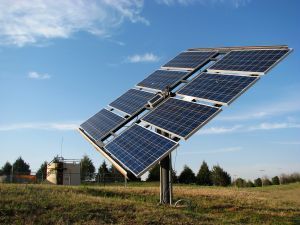Latest NEWS
- Aswat Masriya, the last word
- Roundup of Egypt's press headlines on March 15, 2017
- Roundup of Egypt's press headlines on March 14, 2017
- Former Egyptian President Hosni Mubarak to be released: lawyer
- Roundup of Egypt's press headlines on March 13, 2017
- Egypt's capital set to grow by half a million in 2017
- Egypt's wheat reserves to double with start of harvest -supply min
- Roundup of Egypt's press headlines on March 12, 2017
Egypt considers allocating state-owned lands to produce renewable energy

Solar Power - Reuters
CAIRO, Oct 28 (Aswat Masriya) – Egypt's ministry of electricity is studying a bill which would allow it to use state-owned lands in projects for producing electricity from renewable energy, the minister said on Tuesday.
Electricity Minister Mohamed Shaker added that the bill would also oblige electricity companies to buy and transport the produced renewable energy, according to a ministerial statement.
The components and spare parts used in producing renewable energy will be tax-free, Shaker said.
Producing renewable energy is among the recent projects Egypt's government has adopted to face the energy crisis the country is currently going through.
On September 17, the cabinet amended the law governing the New and Renewable Energy Authority (NREA) to allow the authority to form companies to produce and sell electricity.
The minister noted on Tuesday that generating electricity from renewable energy mainly depends on governmental funding, which poses as a "large burden" on the state's budget. He added that the cost of producing renewable energy is "much larger" than that of producing fossil fuels.
The cabinet's economic committee announced on September 20 the tariffs for electricity generated by renewable energy.
Shaker had said then that consumer citizens will pay for the percentage of electricity generated from renewable energy from the total amount of electricity generated. The cabinet will annually determine this percentage and it will be added to the monthly electricity bill.
The minister had added that making the consumers pay for the new tariff aims to increase the demand on renewable energy.
Since the summer of 2012, Egypt has been facing its worst energy crisis in years, with power outages on the rise. Power cuts have specifically surged since the start of last summer.
Egyptian authorities have often owed the power crisis to a larger fuel crisis, which mainly involves a shortage in natural gas.










